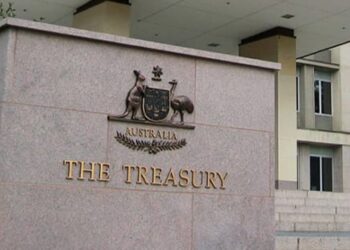Addressing Victoria University’s Sir Zelman Cowen Centre for legal training on Wednesday, Mr Hayne said the degradation of political debate and resulting lack of trust across Australian and other developed economies’ governments had meant that the public no longer trusted parliamentarians to address significant problems in society.
“Slogans supplanting reasoned debate about policy may go some way to explaining why, in recent years, difficult issues of public policy have often been referred to royal commissions and other external inquiries,” Mr Hayne said.
“Those bodies generate reports that are, or should be, independent and reasoned. Frequent use of independent commissions of inquiry may suggest that governmental structures can now deal effectively only with the immediate emergency and cannot deal with the larger issues that face us.
“One reason that may be so is that the space left by the absence of reasoned debate is filled with slogans coined by partisan participants. And this happens even where the basic information on which reasoned debate would be based is freely available to the whole community.”
Mr Hayne mentioned Indigenous constitutional recognition and climate change as two key issues which had become subject to “sloganeering and peddling of… misleading ideas” in Australian political debate, as well as Brexit in the UK and Russian interference in the US election.
“Nativist populist leaders have come to the prominence they now occupy by endless repetition of slogans accompanied, too often, by repeatedly denying the undeniable and shouting down those who would speak truth to power,” he said.
As a result, trust in government as well as other “systemically important institutions” had been degraded, he said.
In order to force these institutions to become more accountable, the public must “insist upon absolute honesty and integrity,” Mr Hayne added.
“We must do what we can to impress upon those who seek office that power is not the objective, that ‘having the numbers’ in the branch, the faction, the party, the legislature, is not the end,” he said.
“What matters is what our democratic institutions do, and how they do it. And all our democratic institutions are based upon reasoned and informed debate.”
Mr Hayne also cited steps taken by the government during the COVID-19 health crisis as a good example of institutions communicating the need for significant change in a factual manner.
“Governments have very quickly made radical changes in the ways we live and work. They have done that by telling society the facts as simply and clearly as they can,” he said.
“Society has responded to being trusted with the facts that are known and has recognised that difficult judgments have had to be made. And government has brought about great changes so that, together, we can pursue shared purposes.”




All this coming from Hayne a lawyer who couldn’t stick to his remit of MISCONDUCT in the Banking and Superannuation sector and instead bent his knee to CBA’s CEO and strayed outside his remit to try and ban commissions for Mortgage Brokers (Loans), Financial Advisers (Insurance) and grandfathered commissions for investments which clients knew they were paying and by ceasing commissions has played right into the hands of the big banks who now get to sell their financial advice businesses at a higher price.
You sir have been played because you have no clue about the subject area you were entrusted to adjudicate on.
With the current destruction and depletion of the advised Life Insurance industry and the resultant diabolical situation regarding massive under insurance, skyrocketing premiums,increasing claims and rapidly declining new business volumes, does Kenneth Hayne still believe that a reduction to zero commissions will fix all the problems ?
If so, we have someone that is so far out of touch with the reality of the industry it is frightening.
Reeks of Pontius Pilate washing of hands lately, Trowbridge, now Hayne….’it’s not my fault’!!
Somehow everything he says jars.
It would be wonderful to impose a best interest duty on Pollies. That they act in the best interests of the governed – not the party!
Easier option- get them to write an exam !!
and they have to write 100 page statements of advice detailing how their legislation is beneficial with accurate file notes along with research papers on how they ACTUALLY reached a decision.
They should also be PERSONALLY liable for any issues that arise from the advice they put in place as well.